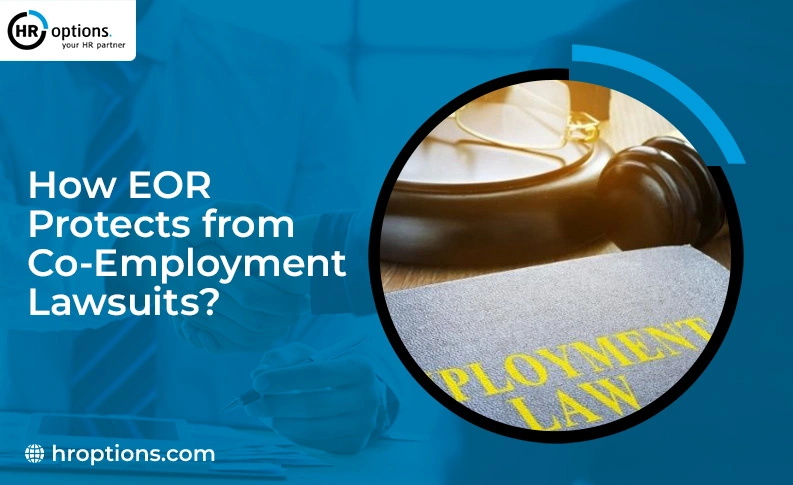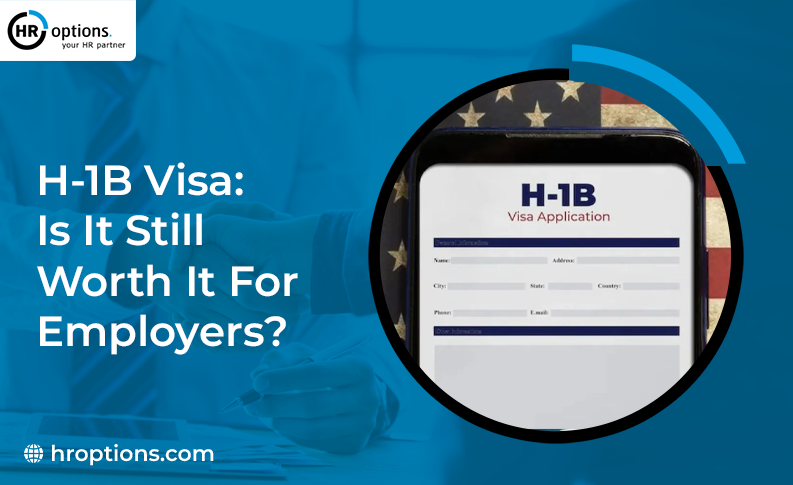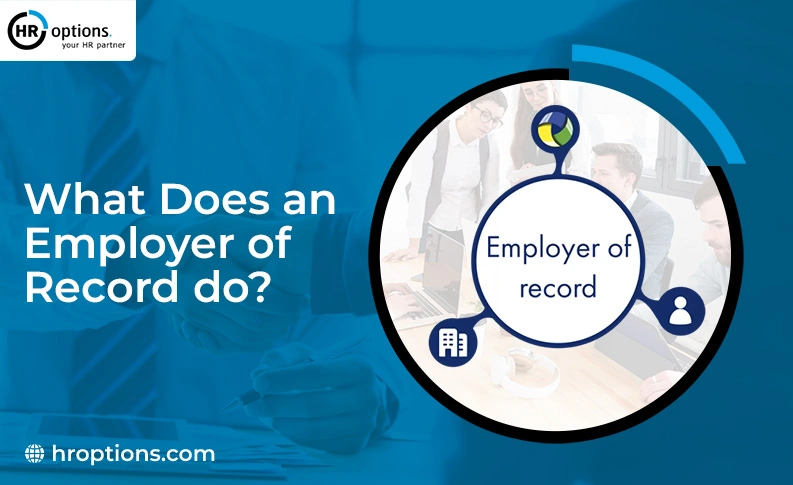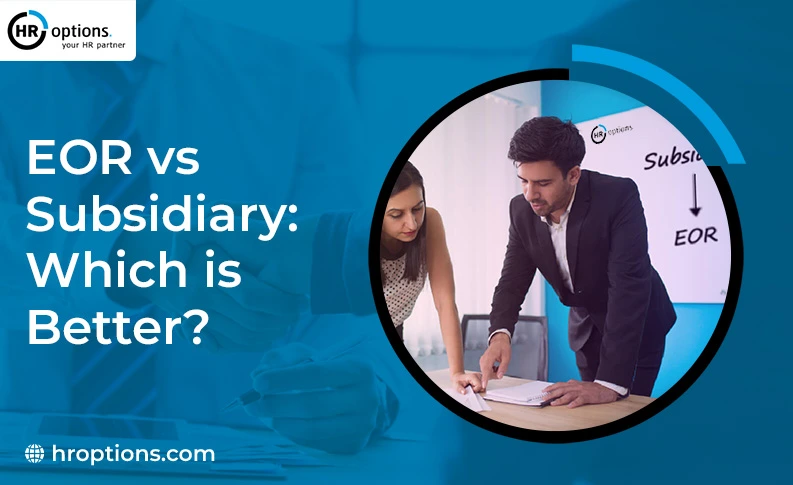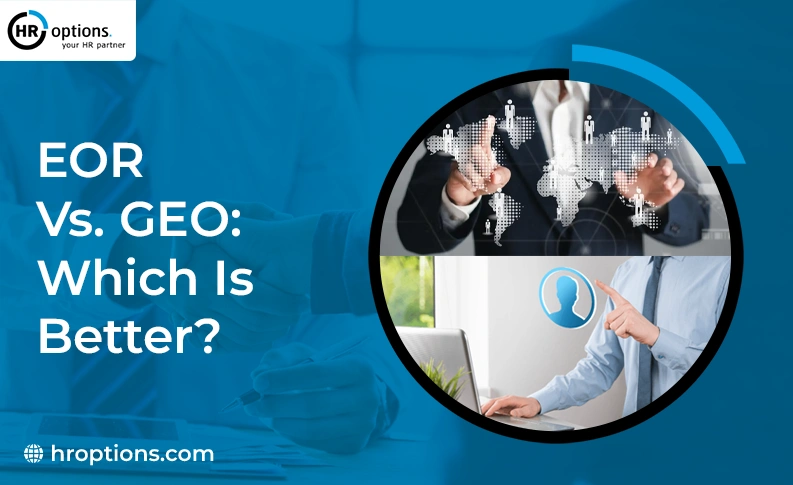Co-employment lawsuits arise when it’s unclear who the real employer is. Is it a staffing agency or the client company? An Employer of Record (EOR) eliminates that uncertainty by taking on the official employer role and managing compliance, payroll, and HR operations that often lead to disputes. Through clear employer status, accurate payroll, proper benefits administration, consistent HR policies, correct worker classification, wage and hour compliance, meticulous onboarding, fair dispute handling, safety oversight, and a legal liability shield, an EOR protects businesses from co-employment risks. These safeguards let companies focus on growth while minimizing exposure to costly legal claims.
Ways an EOR Protects from Co-Employment Lawsuits
Here’s where the protection really shows itself, in the details of what an EOR does day to day.
1. Clear Employer of Record Status
No need to second guess. With an EOR, the line is drawn. They’re the legal employer, not you. That clarity keeps companies from being pulled into lawsuits that stem from staffing confusion. Simple, clean, and effective.
2. Accurate Payroll Processing
Nothing triggers mistrust faster than a wrong paycheck. Missed overtime, incorrect deductions, or late deposits can all fuel claims. EORs take payroll seriously. Every hour logged, every tax calculated, every deposit on time. That kind of reliability prevents payroll-related disputes before they arise.
3. Benefits Administration
Health insurance, retirement eligibility, compliance with the Affordable Care Act – benefits are a minefield. One small slip, and suddenly you’re in legal hot water. An EOR keeps tabs on the details, manages enrollments, and ensures regulations are met. Workers feel taken care of, and businesses sidestep penalties.
4. Consistent HR Policies
Imagine two employees doing the same job but being treated under different sets of rules. That’s a common trigger for lawsuits. An EOR keeps policies consistent and fair across the board, whether it’s leave, scheduling, or workplace conduct. Employees know what to expect, and companies avoid claims of favoritism or discrimination.
5. Proper Worker Classification
This is one of the biggest traps. Classify an employee as a contractor by mistake, and you’re looking at fines, audits, and lawsuits. EORs study each role, apply the right classification, and document it fully. That documentation becomes your shield when compliance is questioned.
6. Compliance with Wage and Hour Laws
Every state, sometimes even every city, has its own rules about breaks, overtime, and minimum wage. And they change constantly. An EOR keeps track, adjusts payroll, and makes sure schedules reflect the law. Without that vigilance, wage-and-hour lawsuits become a real threat.
7. Onboarding and Documentation
Paperwork may sound dull, but it’s often what makes or breaks a case. Missing I-9s, unsigned contracts, forgotten acknowledgments – these open the door to disputes. EORs manage the process meticulously, creating a paper trail that protects both sides if questions ever arise.
8. Handling Workplace Disputes
Not every problem is avoidable. Harassment claims, conflicts, and termination issues will happen. What matters is how they’re handled. EORs bring HR professionals into the mix to resolve disputes fairly and by the book. Addressed early, many issues never escalate into lawsuits.
9. Workplace Safety Oversight
Factories, warehouses, and even offices face safety risks. One accident can trigger injury claims and liability disputes. EORs help by reinforcing OSHA compliance, keeping safety training on track, and maintaining thorough documentation. Though often overlooked, it shields businesses from lawsuits tied to unsafe conditions.
10. Liability Shield in Legal Claims
At the end of the day, the EOR is the legal employer of record. When lawsuits do arise, liability is shared or significantly reduced for the client, as the EOR assumes much of the employer responsibility. That protective barrier gives leadership peace of mind, knowing a large part of the risk is carried by the EOR.
Conclusion
Co-employment lawsuits are expensive and draining. They sap focus, shake employee trust, and distract leaders from running the business. With an EOR, so many of those risks get cut off at the root. Payroll errors don’t happen because they’re handled by experts. Benefits are tracked and administered properly.
Worker classifications stay accurate, policies remain consistent, and wage laws are followed without fail. Even the tedious parts, like onboarding paperwork or safety oversight, get covered, leaving fewer cracks for legal disputes to slip through. Add to that fair handling of disputes and the liability shield that comes with the EOR’s legal role, and the protection is hard to miss. That’s exactly what HR Options delivers: practical EOR support that keeps lawsuits at bay and gives businesses the freedom to focus on what they do best
